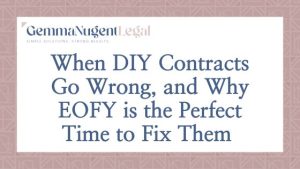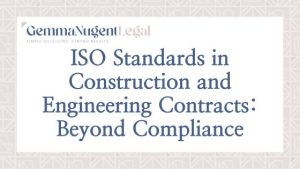Your contracts are more than just legal documents. They serve as a critical indicator of your business’s standards. Every clause, format choice, and risk allocation tells a story about your professional capabilities and business acumen.
Here’s what your contracts might be revealing about you, and why it matters to your bottom line.
Professional polish versus DIY disasters
First impressions count. Your contract is often one of the first communications you’ll exchange with a buyer. When a potential client or partner opens your contract, they’re not just reading the T&Cs. They’re reading between the lines about your business acumen.
A professionally crafted contract speaks volumes about your business. It demonstrates your attention to detail, shows you’ve invested in proper business processes, and signals respect for your clients’ time and professionalism. Conversely, red flags like inconsistent formatting, missing clauses, or obvious copy-paste jobs from Google scream “amateur hour” and could cost you valuable opportunities. Your clients will wonder if your business is ready for the big league.
Confidence breeds trust
Your contract’s clarity reflects your business confidence. When you understand your processes and risks well enough to articulate them clearly, it shows. This confidence becomes contagious – clients naturally trust businesses that know their worth. Clear terms lead to fewer disputes, and a professional presentation consistently attracts professional clients.

Beyond aesthetics: Structure matters
While looks aren’t everything, a well-structured contract demonstrates organisational competence. Experienced clients look for logical flow in your clauses, consistent numbering and formatting, clear section breaks, and accurate cross-references. Your contract’s professional presentation should align seamlessly with your brand.
Think of it as your business’s handshake: firm, professional, and memorable for the right reasons.
Design consistency matters (especially for creative businesses)
For businesses in design-focused industries (e.g., architects, interior designers, high value home builders, landscape architects), your contracts should reflect the same attention to visual detail that you bring to your projects. When your business card, website and project presentations are beautifully designed, a poorly formatted contract creates a jarring disconnect.
Consider asking your graphic designer to review your contract’s visual elements. They can provide valuable input on typography choices, spacing and margins, header and footer design, brand colour integration, and logo placement. This attention to detail shows consistency across all business touchpoints and demonstrates your commitment to professional presentation. It proves you understand that details matter at every level and respect visual communication. When your contract aligns with your brand’s visual standards, it reinforces your professional identity and shows clients you maintain excellence across all aspects of your business.
The Readability Test
Can you explain your contract terms without hesitation? If not, that’s a problem. A well-drafted contract should be clear enough for quick reference and free from unnecessary legal jargon. It needs to be structured for easy navigation and understood by all parties involved.
Remember: If you can’t confidently explain a clause, neither can your team, and that’s where problems begin.
Risk management: Showing you’ve done your homework
Your approach to risk allocation speaks volumes about your business maturity. Smart contracts demonstrate deep understanding of industry-specific risks and create a fair balance between parties’ interests. They establish clear processes for managing issues and take a realistic approach to project challenges.

The Insurance Factor
Professional contracts protect more than just your immediate interests – they safeguard your insurance coverage too. Your contract should align with insurance requirements while including necessary indemnity provisions and liability caps. It needs to maintain clear risk allocation and protect both parties’ insurance positions.
Time and money: Practical essentials
A comprehensive contract shows you understand project realities. This means incorporating clear payment terms and processes, setting realistic timeframes and milestones, and establishing robust change management procedures. It should address cost escalation mechanisms and provide framework for managing delays and disruptions.
The Bottom Line
Your contracts are a business card, insurance policy, and reputation manager all rolled into one. They tell clients everything they need to know about whether you’re professional and detail-oriented, experienced in risk management, easy to work with, and worth their investment. Investing in professional contract development isn’t just about legal protection. It’s about building business credibility that pays dividends in client trust and project success.






